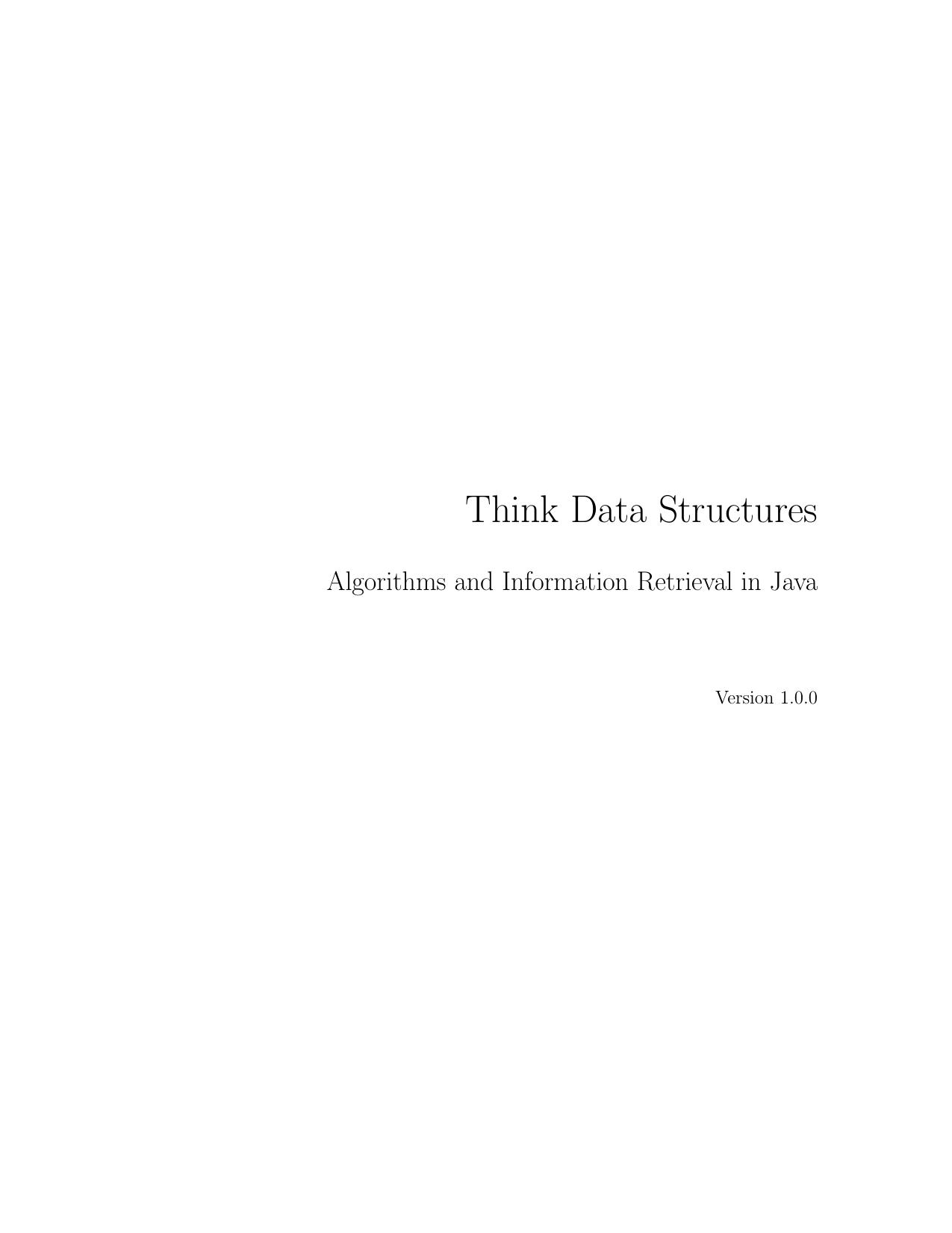Think Data Structures: Algorithms and Information Retrieval in Java by Allen B. Downey

Author:Allen B. Downey [Downey, Allen B.]
Language: eng
Format: azw3, pdf
Publisher: O'Reilly Media
Published: 2017-07-07T04:00:00+00:00
Hashing and Mutation
Strings are immutable, and SillyString is also immutable because innerString is declared to be final. Once you create a SillyString, you can’t make innerString refer to a different String, and you can’t modify the String it refers to. Therefore, it will always have the same hash code.
But let’s see what happens with a mutable object. Here’s a definition for SillyArray, which is identical to SillyString, except that it uses an array of characters instead of a String:
public class SillyArray { private final char[] array; public SillyArray(char[] array) { this.array = array; } public String toString() { return Arrays.toString(array); } @Override public boolean equals(Object other) { return this.toString().equals(other.toString()); } @Override public int hashCode() { int total = 0; for (int i=0; i<array.length; i++) { total += array[i]; } System.out.println(total); return total; }
SillyArray also provides setChar, which makes it possible to modify the characters in the array:
Download
Think Data Structures: Algorithms and Information Retrieval in Java by Allen B. Downey.pdf
This site does not store any files on its server. We only index and link to content provided by other sites. Please contact the content providers to delete copyright contents if any and email us, we'll remove relevant links or contents immediately.
The Mikado Method by Ola Ellnestam Daniel Brolund(23444)
Hello! Python by Anthony Briggs(22578)
Secrets of the JavaScript Ninja by John Resig Bear Bibeault(21369)
Kotlin in Action by Dmitry Jemerov(20426)
The Well-Grounded Java Developer by Benjamin J. Evans Martijn Verburg(20264)
OCA Java SE 8 Programmer I Certification Guide by Mala Gupta(19440)
Algorithms of the Intelligent Web by Haralambos Marmanis;Dmitry Babenko(18248)
Grails in Action by Glen Smith Peter Ledbrook(17373)
Sass and Compass in Action by Wynn Netherland Nathan Weizenbaum Chris Eppstein Brandon Mathis(14803)
Test-Driven iOS Development with Swift 4 by Dominik Hauser(11206)
Windows APT Warfare by Sheng-Hao Ma(7854)
Layered Design for Ruby on Rails Applications by Vladimir Dementyev(7567)
Blueprints Visual Scripting for Unreal Engine 5 - Third Edition by Marcos Romero & Brenden Sewell(7475)
Solidity Programming Essentials by Ritesh Modi(4588)
Functional Programming in JavaScript by Mantyla Dan(4552)
Hands-On Full-Stack Web Development with GraphQL and React by Sebastian Grebe(4449)
WordPress Plugin Development Cookbook by Yannick Lefebvre(4419)
Ember.js in Action by Joachim Haagen Skeie(4310)
Unity 3D Game Development by Anthony Davis & Travis Baptiste & Russell Craig & Ryan Stunkel(4283)
